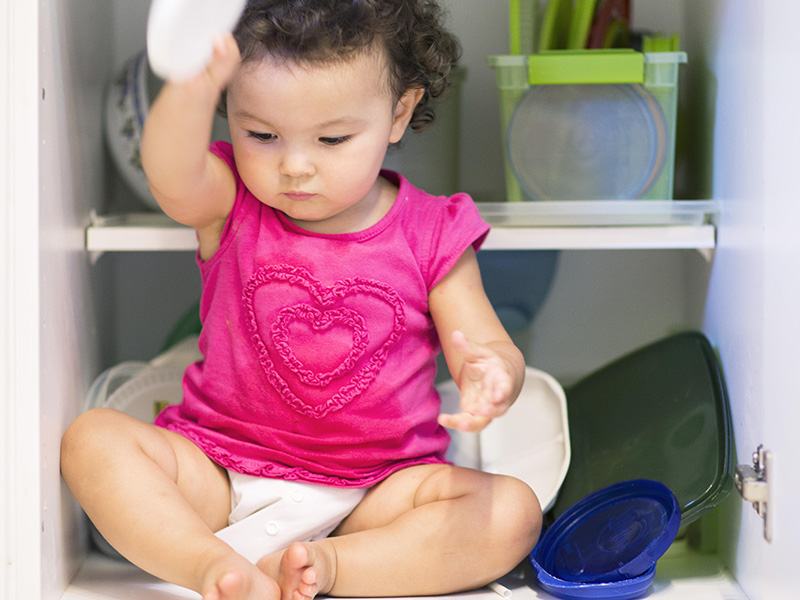“No, no, don’t touch that.” Sound familiar? Even when your child begins to understand what “no” means, you’ll still find yourself repeating this word many times during this stage of development.
- Learning that the word “no” means to “stop” or “don’t touch” is one step in your child’s ever-developing brain.
- Controlling impulses to not reach, grab for, or throw things, etc. comes as your child’s brain continues to develop.
- Tantrums from being told “no” get stronger as your child continues to grow in his or her independence.
Just like adults, being told “no” when one really wants something often creates frustration. In children ages 1 to 2 years old, it’s common for frustration to be expressed with crying and tantrums.
How to reduce the word ‘no’
Sometimes it feels like the word you use most often with your child is “no.” Although your child won’t totally understand why you’re saying no, start to use words to explain the reason you’re using it. For example, when attempting to touch the stove, use words like “No, don’t touch. Hot! You can get hurt.”
Your child responds better to instructions when told the “why” behind the directive. Being kind but firm with your tone of voice will get the most important part of your message across. Practicing these techniques helps to develop a communication style between you and your child.
Create a safe home
In the meantime, make your home safe and child-friendly. Think about where you can place age-appropriate toys, books and other objects. When you allow your child to get to these things on their own, they feel free to explore. This also lowers your stress as you know these things are safe for your child and won’t require you to say “no” when your child wants them.
Consider putting away things that aren’t safe for your child and using items like baby gates and door handle covers to help your child learn where they can easily and safely explore. And remember – this stage is temporary. When your child is older, you can display that special item again.
It’s important to provide your child safe spaces to play in order to nurture the natural curiosity children have to explore and learn about their world. This curiosity encourages your child’s learning and brain development.
For personalized answers to your parenting questions, call Sanford’s Parenting Line at (605) 312-8390 or email parenting@sanfordhealth.org.
Learn more
- Self-control is a struggle for toddlers
- Keep kids safe: The ABCs of childhood injury prevention
- Top 10 toddler discipline strategies to try
…
Posted In Children's, Parenting
